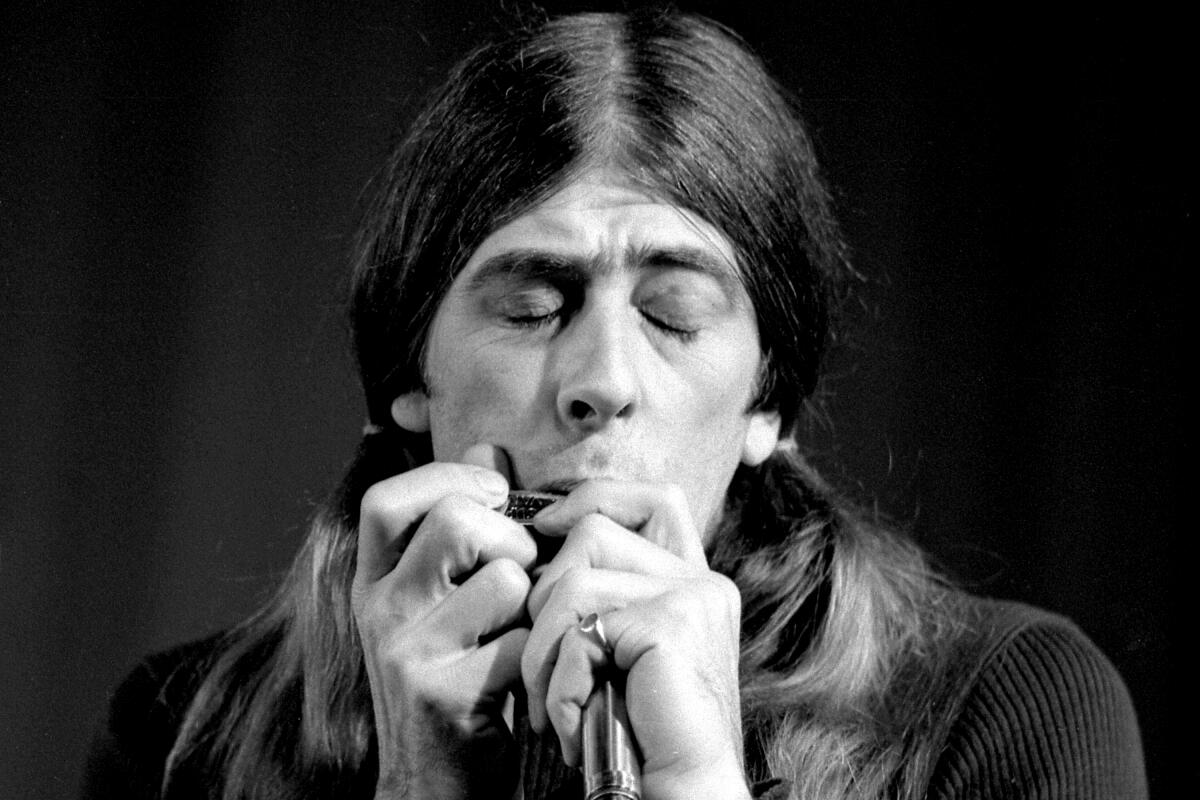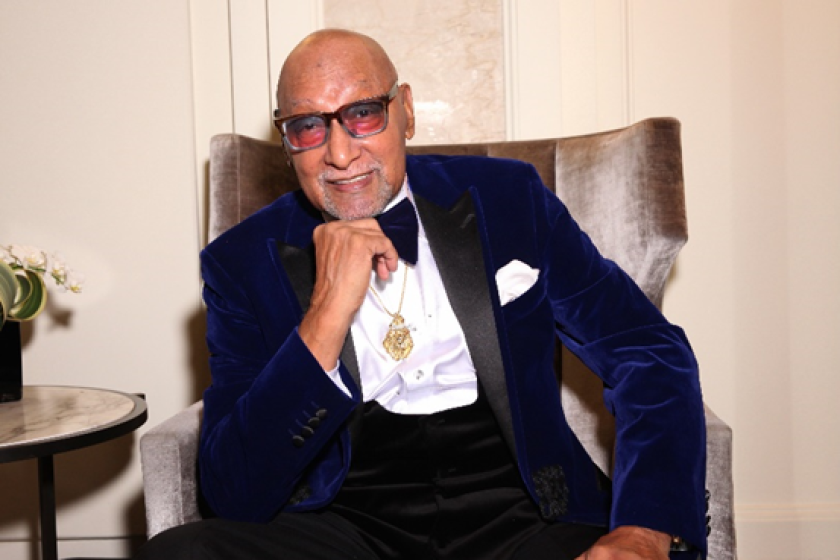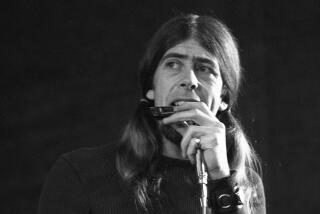John Mayall, pioneering British blues musician, dies at 90

John Mayall, the musician and bandleader often referred to as the godfather of the British blues — and whose long-running group the Bluesbreakers incubated some of rock music’s biggest talents, including Eric Clapton, Mick Taylor and Mick Fleetwood — died Monday at his home in California, according to a statement posted by his family on his official Facebook page. He was 90.
The statement didn’t specify a cause but attributed the death to the “health issues that forced John to end his epic touring career.”
Mayall, who’d been performing on the road as recently as 2022, was due to be inducted into the Rock & Roll Hall of Fame in October as a recipient of the organization’s Musical Influence Award. On its website, the hall hailed Mayall’s “rugged individuality and distinctive voice and style” and said he “continually experimented with and stretched the blues.”
“The blues is such an everlasting source of inspiration to me,” he told The Times in 1990. “It’s quite inexhaustible, really.”

A guitarist, keyboardist, singer, harmonica player and songwriter, Mayall released dozens of albums and played innumerable gigs in a career that stretched over more than half a century. Yet he’s best remembered for helping to launch the blues revival of the 1960s that would go on to make pop stars of Clapton, the Rolling Stones and Fleetwood Mac.
His 1966 LP “Blues Breakers,” which featured Clapton on guitar (not long after he’d left the Yardbirds), is widely considered a classic of the form and earned a spot on Rolling Stone’s list of the 500 greatest albums of all time.
Mayall was born in 1933 near Manchester, England, where his father collected records and played music as a hobby. At age 3, he “got addicted” to the music of the Mills Brothers, he told The Times; after being discharged from the British Army in his early 20s, he formed his first band “strictly for my own satisfaction.”
Fakir was one of the tightly harmonized voices behind such indelible Motown hits like ‘Baby I Need Your Loving’ and ‘Reach Out I’ll Be There.’
By the time he was 30, though, he’d moved to London to pursue music professionally and found a thriving blues scene he described in The Times interview as “the south’s answer to the north, to the Liverpool pop-rock thing dominated by the Beatles.” Beyond Clapton, the Bluesbreakers eventually attracted Peter Green, who left the band to form Fleetwood Mac; Jack Bruce, who played with Clapton in Cream; and Aynsley Dunbar, who played drums for Frank Zappa, among other artists.
Mayall moved to Los Angeles in 1969 and spent the ’70s expanding his playing into jazz. But he reformed the Bluesbreakers in the mid-1980s and soon got back to averaging 120 dates a year.
“There would be more, but I put a ceiling on it,” he told The Times. “Otherwise, I wouldn’t get any home life, and that’s very important to me.”
Mayall is survived by six children, Gaz, Jason, Red, Ben, Zak and Samson; seven grandchildren and four great-grandchildren. His family’s statement said he “is also surrounded with love by his previous wives, Pamela and Maggie, his devoted secretary, Jane, and his close friends.”
More to Read
The biggest entertainment stories
Get our big stories about Hollywood, film, television, music, arts, culture and more right in your inbox as soon as they publish.
You may occasionally receive promotional content from the Los Angeles Times.












